SBC Executive Committee elects first African American chair
NASHVILLE (BP)—The Southern Baptist Convention Executive Committee elected its first African American chair in a special called meeting June 16.
Rolland Slade, pastor of Meridian Baptist Church in El Cajon, Calif., was unopposed as chair and was unanimously elected by ballot vote. Outgoing chair Mike Stone called for a ballot vote, he said, to mark the historic moment.
“I think we all realize by what is going on in this country as well as in our convention, this timing is in many ways the providence of our Lord,” said Stone, pastor of Emmanuel Baptist Church in Blackshear, Ga. He served the last two years as Executive Committee vice chair.
Jared Wellman, pastor of Tate Springs Baptist Church in Arlington, nominated Slade, who attributed his election to God.
“I don’t think there was ever a plan for me to be in this position,” Slade told Baptist Press. “I think it’s what God has done. … I believe God loves diversity. He created us, and we are all diverse. I think for us to not embrace it is saying that, ‘We’ve got a better idea than you.’”
The called meeting was conducted on Zoom and livestreamed, as the COVID-19 pandemic prevented the Executive Committee from meeting at its Nashville headquarters. The Executive Committee conducted business delayed by the cancellation in March of the 2020 SBC annual meeting, originally slated June 9-10 in Orlando, Fla.
‘The mighty hand of God at work’
After the vote, Slade thanked Executive Committee members, his family and his church for their support.
“We praise God together, and let’s pray together, and let’s stay together,” he said, “because I’ve learned that a family that prays together, stays together.”
Marshal Ausberry, SBC first vice president, said Slade’s election shows how far the SBC has come, and also shows the “mighty hand of God at work.”
“His election shows the positive transformation that is occurring in the convention,” said Ausberry, president of the National African American Fellowship of the SBC and pastor of Antioch Baptist Church in Fairfax Station, Va.
“When you think of the founding of the SBC in 1845, largely over the issue concerning the ownership of enslaved persons by missionaries, to the election of Rolland Slade in the 175th year, this is a seminal moment for the convention and all Southern Baptists.”
‘Moving in the right direction’
SBC President J.D. Greear, who has made diversity a major emphasis of his term, has lamented that SBC leadership does not reflect current SBC diversity. He called Slade’s election an “exciting day for our convention.”
“Rolland Slade’s election demonstrates we are moving in the right direction,” said Greear, pastor of The Summit Church in Durham, N.C. “During my two years as SBC president, I have worked alongside Rolland and seen his leadership and character to lead this body at this time.
Fred Luter, the only African American elected as SBC president, praised God for Slade’s election, especially in the midst of nationwide racial tension.
“Rolland is certainly deserving of this historical honor not just because of the color of his skin, but because of his knowledge, skills and leadership as a member of the Executive Committee through the years,” said Luter, pastor of Franklin Avenue Baptist Church in New Orleans, who was SBC president from 2012 to 2014.
“I am proud of Rolland and proud of the men and women of this committee for making this such a historic moment in the Southern Baptist Convention. To God be the glory for the things he has done!”
In other business:
Tom Tucker, a vocational evangelist from Rock Hill, S.C., was elected as Executive Committee vice chair. Joe Knott, an attorney from Raleigh, N.C., was re-elected secretary.
The Executive Committee also elected four committee chairs. Robyn Hari, a financial advisor from Brentwood, Tenn., was elected chairman of the Committee on Convention Finances and Stewardship Development. Rob Showers, an attorney from Leesburg, Va., was elected chairman of the Committee on Convention Missions and Ministry. Jim Gregory, senior pastor of First Southern Baptist Church in Mountain Home, Idaho, was elected to chair the Committee on Southern Baptist Relations. Rod Martin, CEO of The Martin Organization in Destin, Fla., was elected to chair the Committee on Convention Events and Strategic Planning.
The Executive Committee voted to recommend that messengers to the 2021 SBC Annual Meeting move the 2025 SBC Annual Meeting from Salt Lake City to Dallas. The proposed date of the Dallas meeting would be June 10-11, 2025.
The group also voted to recommend to messengers that the 2027 SBC Annual Meeting be held June 8-9 in Salt Lake City. Both recommendations are contingent upon satisfactory contract negotiations.
The Executive Committee also granted permission to apply, if necessary, for a Paycheck Protection Program loan of up to $750,000 through the U.S. Small Business Administration under the Coronavirus Aid, Relief and Economic Security Act.
Bill Townes, SBC Executive Committee chief financial officer, noted a loan could be used to offset an anticipated decrease in Cooperative Program giving during the economic downturn related to the COVID-19 pandemic.
At the close of the meeting, the Credentials Committee notified the Executive Committee of the election of a new chairman, Mike Lawson, pastor of First Baptist Church in Sherman. Stacy Bramlett, the outgoing chairman, remains a Credentials Committee member.
Messengers to the 2019 SBC Annual Meeting established the committee to receive reports of a church’s suspected departure from Southern Baptist polity, doctrine or practice and to make recommendations to the SBC Executive Committee regarding the possible disfellowship of churches from the SBC.
The next Executive Committee meeting is scheduled Sept. 21-22 in Nashville.
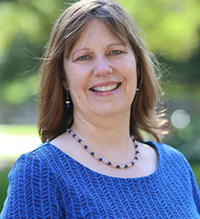
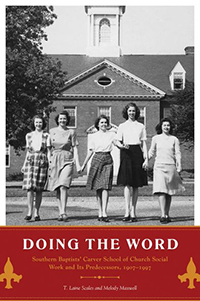 On the one hand, the WMU Training School bore the imprint of some WMU leaders who were influenced by the social gospel movement and took progressive positions. They prioritized Christian social ministry among the poor and vulnerable, and they made sure students at the WMU Training School could attend classes taught by professors from Southern Baptist Theological Seminary.
On the one hand, the WMU Training School bore the imprint of some WMU leaders who were influenced by the social gospel movement and took progressive positions. They prioritized Christian social ministry among the poor and vulnerable, and they made sure students at the WMU Training School could attend classes taught by professors from Southern Baptist Theological Seminary.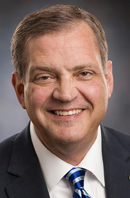
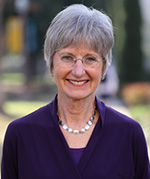
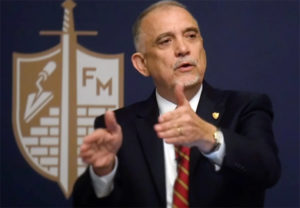





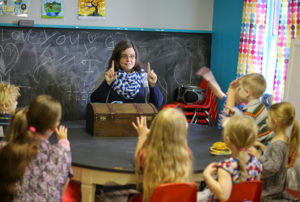
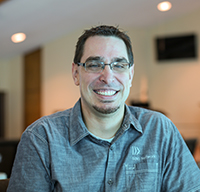


 “#ahmaudarbery, #breonnataylor, #georgefloyd – Hashtags that represent people made in God’s image — souls tragically lost,” Greear
“#ahmaudarbery, #breonnataylor, #georgefloyd – Hashtags that represent people made in God’s image — souls tragically lost,” Greear